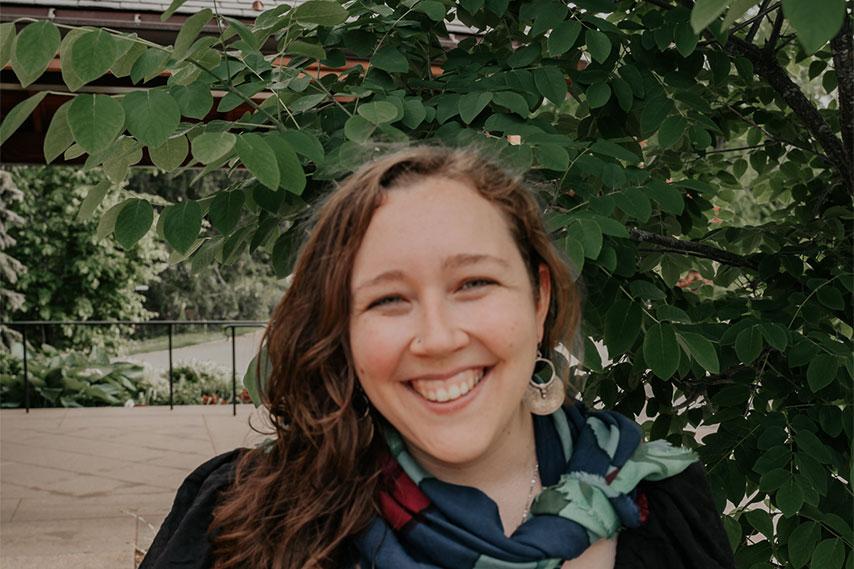Instructor Spotlight: Kat Poje

Tell us about your background and what inspired you to teach this course?
Kat Poje: My doctoral research focuses on the history of animal euthanasia in the United States. The humane movement in this country has been led predominantly by white upper and middle class activists. And those activists saw their work on, say, anti-cruelty legislation or dog catching as something not only about helping animals but also as something that would improve human society. Because it would reform the behavior of those people they thought most prone to violence: working class immigrants and people of color. And I've realized that when looking at animal euthanasia in particular, you can't understand it without also understanding the popularization of eugenics in America. "Mercy killing" for people and animals alike drew from the same well of ideas about population management, progressivism, and the nature of a good life. So this class was my attempt to zoom out a bit and think with my students about how settler colonialism, capitalism, and white supremacy have been conceptually and materially intertwined with animal keeping, all the way from the 17th century to the present. What has changed and what has remained disturbingly consistent? And then, what do we do with this inheritance of a violent, imperial order?
Your course analyzes the fascinating question of ‘What does it mean to be human?’ Not to spoil your course - but could you give us a sneak peek into the answer?
KP: The course grapples with the fact that in European traditions, the category of 'the human' has always been a tool for exclusion and the construction of hierarchies of persons. Far from being neutral, universal, or available to all people, to be human has meant to be a white (and, for many centuries, white Christian) man. Everyone else has been accorded the status of less-than-fully-human and has often been described in terms of animality. This kind of hierarchy has served to justify colonialism, including the settlement of the land that is now the United States, slavery, carceral violence, immigration restrictions, and much else.
The historical reality of white supremacy and colonialism is that many people have never been considered fully human. Likewise, not all humans have equal culpability for environmental collapse: certain historic systems, such as capitalism and imperialism, and the white settler society they uphold, are the major culprits. So any kind of positive change in relationships with animals has to start from there, from the specificity of our inheritance of what it means to be 'human'-- not from a colorblind posthumanism.
What is something you are looking forward to in your course later in the semester?
KP: We are in the process of student group presentations right now, and I have to say that they're my favorite activity. The students basically take over the class for the first hour and, as long as they bring up the readings and introduce a related contemporary event, they have free rein with form and content. I love this exercise both because it brings out students' relationships with the course themes, and because it really encourages solidarity in our learning community. The students who aren't presenting in a given week have to be game for whatever their colleagues are putting on the table, and those who are presenting experience what it's like to facilitate conversation and to respond directly to their peers' contributions. Students always seem nervous when we first discuss this activity but (I think!) ultimately get a lot of satisfaction from realizing how much of our class is in their hands.
What do you hope students will take away from your course?
KP: I hope that when students encounter issues in the world around us, they remember to question the framing. To always ask: What history brought us to this moment? Who benefits from this? Who will be harmed? And who gets to decide?
Kat Poje is a doctoral candidate in the history of science at Harvard University. Her research concerns the development of animal euthanasia, and her teaching focuses on the history of medicine and technology, theories of the (non)human, and the history of race and racism in the U.S.